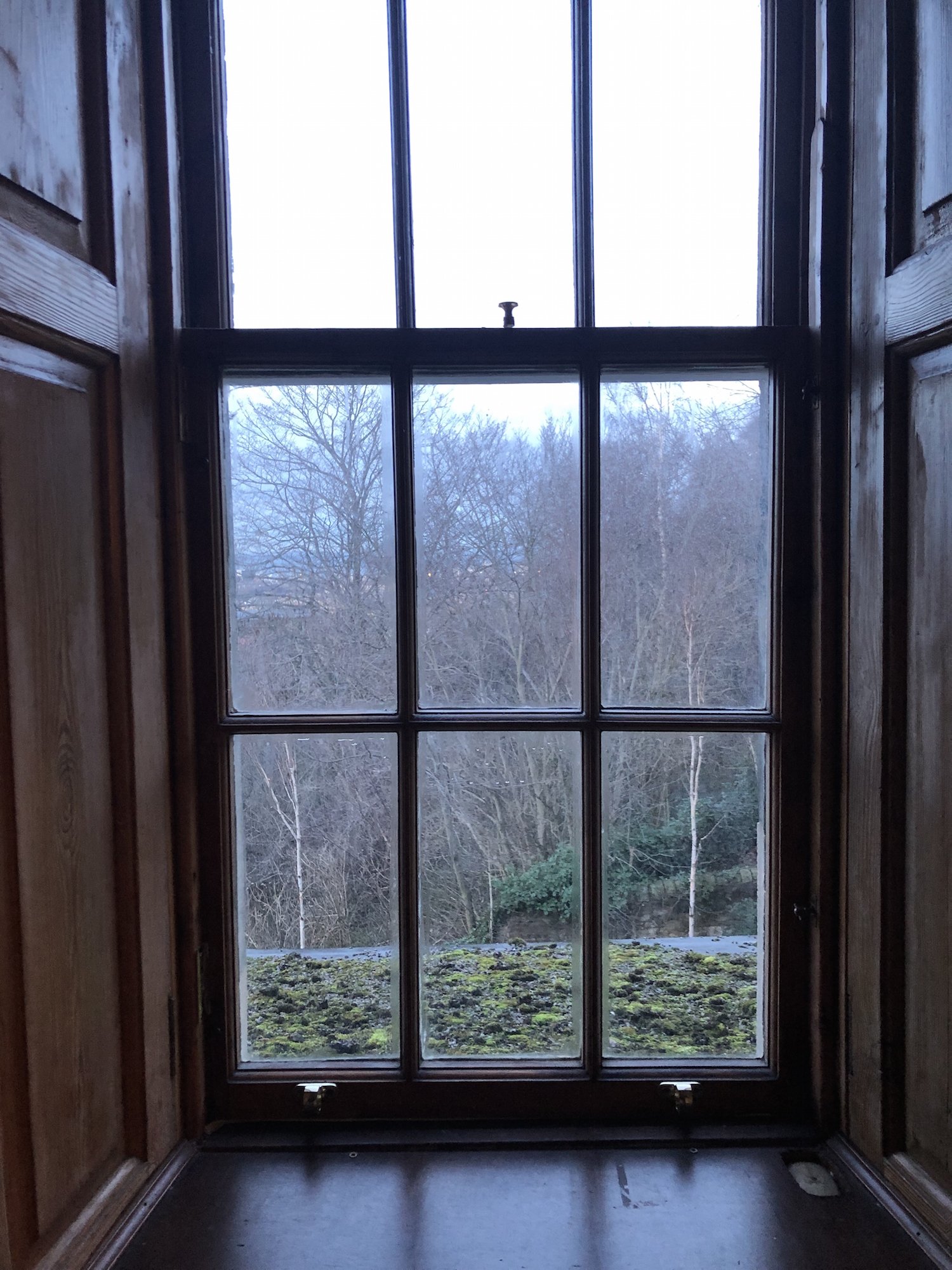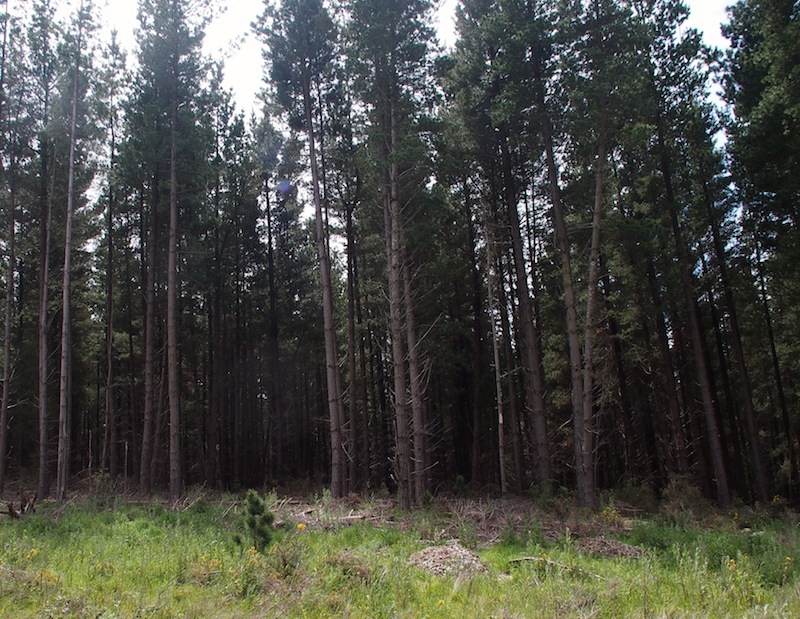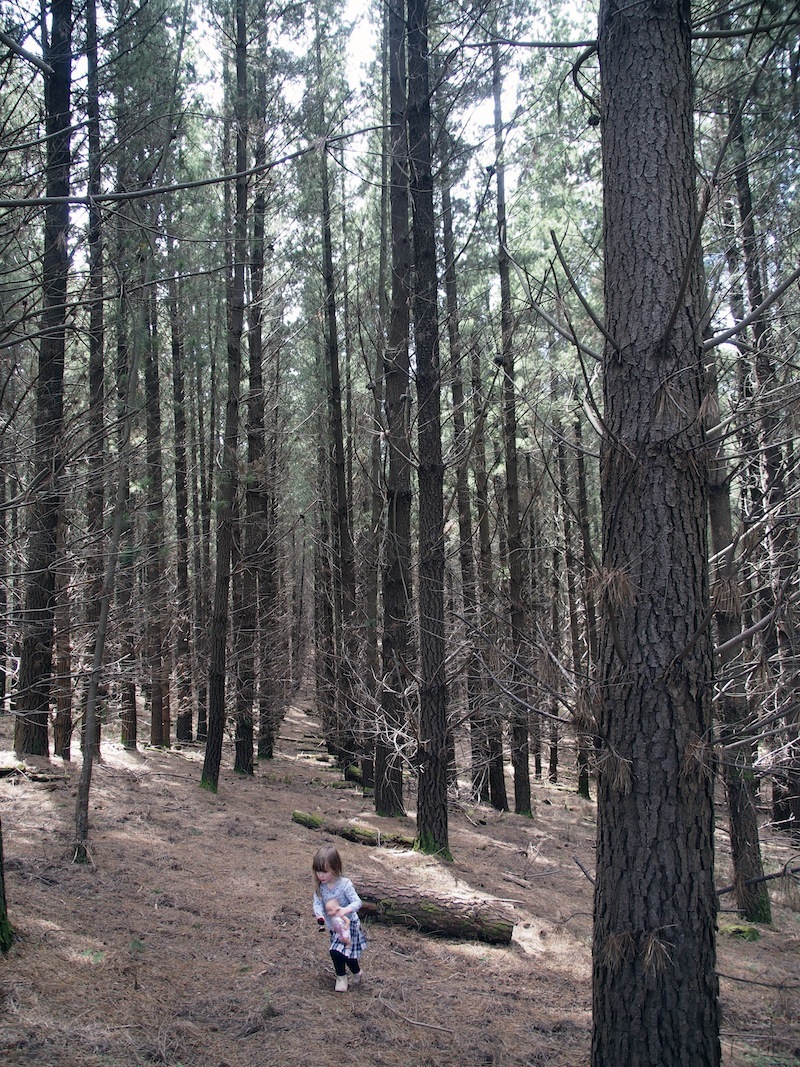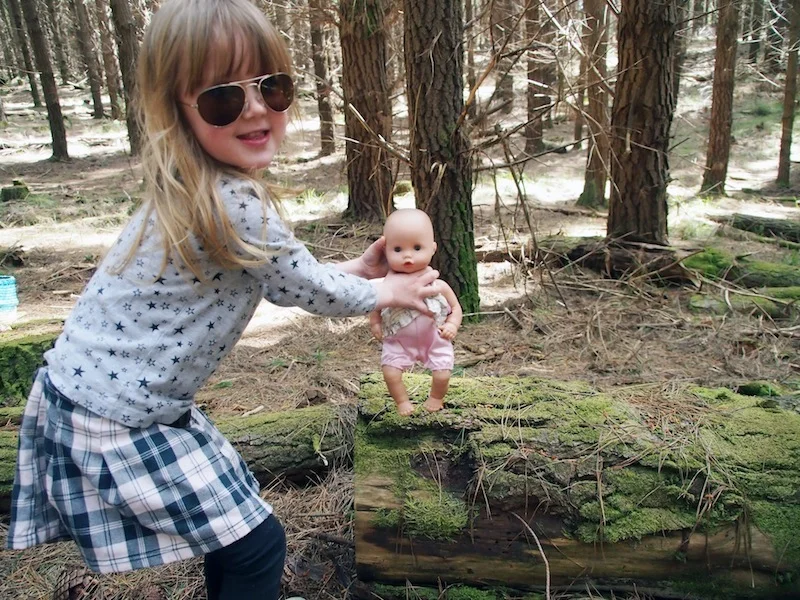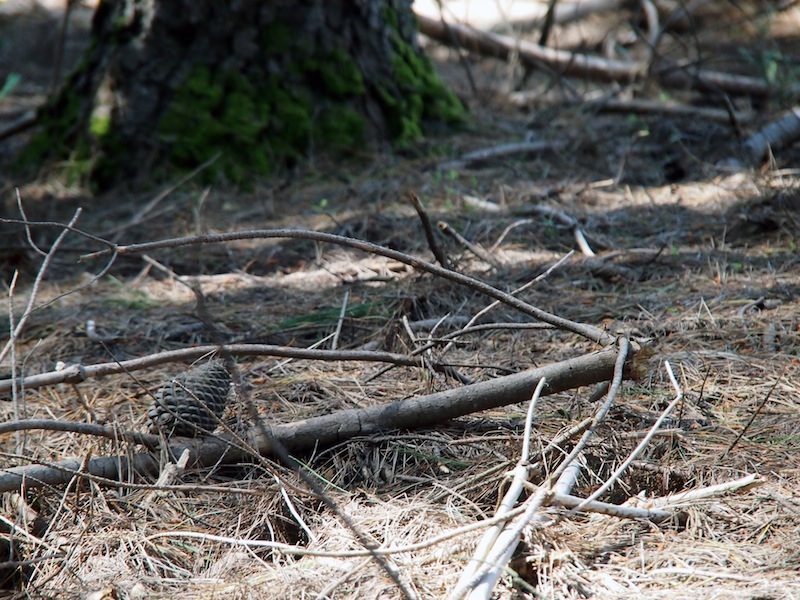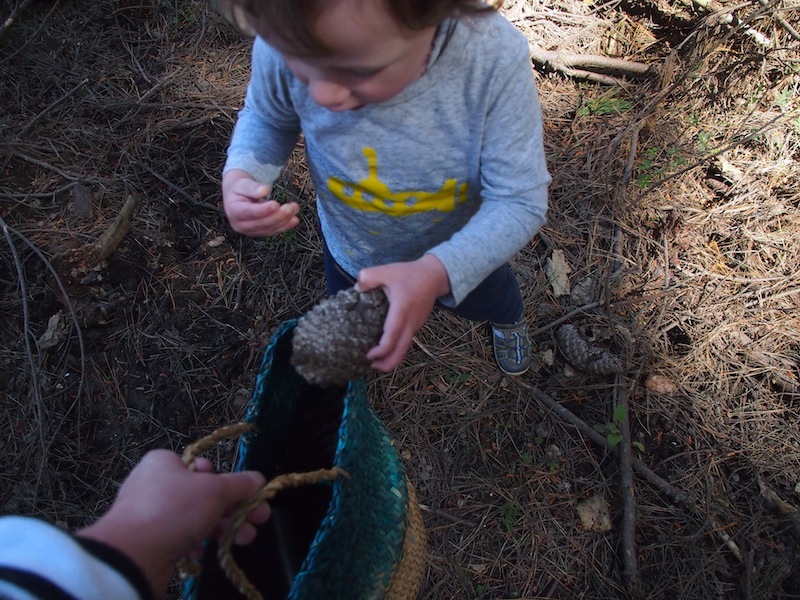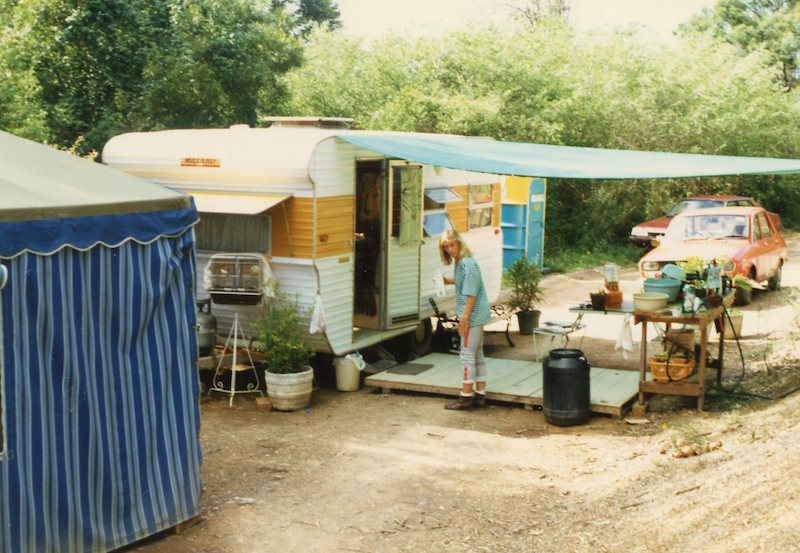
JOURNAL
documenting
&
discovering joyful things
The blackbird in the rose bush
This morning I got up early to water the garden ahead of a forecast 44C degree (111F) day. A blackbird flew down right in front of me, within arm’s reach, and settled deep inside one of my standard roses. The bush is so covered with red blooms right now, like the Queen of Hearts’ roses in Alice in Wonderland, that the bird completely disappeared. I had to stand on my tip-toes and peer over the top leaves to discover she had made a nest in the middle of the rose bush.
I know blackbirds are supposed to be pests but I live in the city, and just about any bird in the garden feels like a gift, an endorsement from nature. I’ve been waking up to the blackbird’s song every morning of late, a sweet, melodic ode to the dawn.
Fires are raging out of control here in Australia, and my parents are facing their second night of evacuation with even worse conditions anticipated for the weekend. This is not new for them: all my life we lived in bushfire prone areas and a ‘bushfire bag’ packed beside the front door was a daily sight during summer. My mother wrote about her childhood experience of bushfires in the mountains on my blog a few years ago.
But by now we all know these fires - and severe weather events everywhere - are not part of the ordinary cycle of nature. Australia is a vast land famous for extreme weather but scientists say our current drought is the worst in 800 years. The suffering that is causing in the affected areas (most of eastern Australia) is compounded by record high temperatures, creating dust storms in crop and grazing areas, and bushfires in forested areas.
The fire brigade came to visit my parents at their house two days ago, and told them the fire closest to them was simply too big and too ferocious to control. Nothing but a heavy downpour would stop it, but a heavy downpour was not on the forecast: the weather there was hot and windy, reaching 47 (116F) in a neighbouring town.
Today when I picked up the children from school, the sky was brown instead of blue. Waiting in the shade of a tree while I tried to cool the car enough for them to sit inside it without burning their bare legs on the seats, they asked me, “Is this what global warming will feel like?” I said, “This is what global warming does feel like.”
I have been remembering a little TV show the kids used to watch, called “Ben and Holly’s Little Kingdom.” In a double episode, visiting aliens asked the elves and fairies to come and save their planet. It used to be paradise, the aliens told them, but now it was all sand. The whole planet was desert when the elves and fairies arrived, but they used magic to bring the rain and soon, it transformed back into a beautiful Garden of Eden. Just as everyone was rejoicing, the head alien said, “Fire ‘em up boys!” (or something to that effect) and factories rose from under the ground and began belching smoke into the air. All the new plants began to wilt.
I don’t know. I mean, the kids get it.
I filled some bowls with water and the children helped me place them in strategic places around the garden so the little blackbird could cool off during the hot day to come.
Scout said, “You really love nature don’t you Mum. Like me.”
Sustainable travel
I’m sorry.
I’m going to apologise to you, first, but then also to the planet. Because the truth is that as much as I tried to be mindful and sustainable while we were travelling as a family last year, I failed more often than I succeeded, and I suspect I could have tried so much harder.
I realise this confession is not very helpful, especially if you happen to have opened this post in the hopes of finding tips for sustainable travel (perhaps we could brainstorm ideas together?). But I think confessions are an important. I fail all too often when it comes to taking care of the world we live in, and I think it’s important to own my failures, and to let myself feel the shame rather than sweep it under the carpet, so that I can do better next time.
Also, maybe if you sometimes feel that everyone else is a zero-waste champion, carrying around a year’s worth of waste in a single mason jar while you forgot to bring the reusable bags to the supermarket last week… my confession might help you feel a little bit better, and perhaps a little less alone. We have a better chance of success if we support one another.
(A bit of context: we were on holidays for one month. There were five of us, three adults and two children, making our way from Dinan in France to Scotland, via Paris and London, staying in Air BnB homes along the way. Our time in the village hadn’t been a brilliant success at sustainability (I shared some of our experiences and ideas here), but it turns out that life on the road can make things a lot more difficult.)
Things that did work well
First, the positives. There were some things I did that worked really well, making life easy and practical for us on the road while also going a small way towards minimising our footprint. They included:
We used public transport as much as possible. From the time we left Australia in August to our return at the New Year, we took trains and buses almost everywhere. We only hired a car for one week, in order to travel in the Scottish highlands, and only took a taxi on one late night in London, and two extremely early (one of them 4am) mornings
I packed three beeswax wraps of varying sizes when we left for our trip, and used them to cover just about anything. They were especially useful in Dinan, but also came in handy when, for example, we wanted to transport a half-eaten cucumber from one Air BnB home to another, without using plastic wrap or take-away plastic boxes
I had also packed a square, collapsible, insulated lunch bag. Again, back in Dinan this was great for carrying cold things home from the market, but it was also handy once we hit the road, not only carrying food from the shops but also storing it and taking it with us from one place to another, rather than throwing things away
I bought some tourist-style biscuit tins. I love to use tins at home for storage, but they were also very helpful while we were travelling, slotting and stacking neatly in my suitcase, and carrying everything from food to stationery supplies to first aid. (Clearly I had already eaten the biscuits. I did it for the planet)
I packed two heat-proof drink-bottles with me when we first left Australia. One was glass and I accidentally smashed it in a ceramic sink in our London B&B, but the other was wood with metal insulation, and is still going strong. I’d fill this with water before leaving from the day, so that we didn’t need to buy plastic bottles of water
I packed two tote bags for carrying groceries, and bought a couple more when I needed them. I also wore a back pack every day (this one), rather than carrying a handbag. It could expand to create a surprisingly big space, and I’ve carried full-sized blankets in it, bottles of milk and wine, stacks of books, and secretly-stashed Christmas presents. Mostly I was pretty good at bringing bags with me, even for things like Christmas shopping. I think we used three or four plastic bags in total in the month we travelled, and those I saved to use as garbage bags in our B&Bs
Things we really should have done better
I didn’t bring a reusable coffee cup. In France, this didn’t matter. I drank tea at home and coffee in cafes and, knowing this would be the case, I just didn’t add it to the luggage I was packing. But in London and Scotland, often my husband would go out early while I was getting the kids dressed, and bring back two coffees and the newspaper to read. It was so nice to have a ‘proper’ latte after all that time that my conscience grew weak.
Lesson: I should have said “no thanks.” Or waited until I could leave, too, and had the coffee in the cafe. I did sometimes, but mostly I didn’t, and I’m sorry.
I took a big bag of soap nuts with me when we first went to Dinan, and used them for several months. But then the ancient washing machine in our rented apartment tore apart the little muslin bag I used for them (as well as several items of my clothing). I didn’t know how to replace it, so I had to buy ordinary laundry powder to use on the road. I tried to find earth-friendly detergent but still ended up with a kind of contact-dermatitis on my legs and torso, which doesn’t bode well for the waters it drained into.
Lesson: I’m not sure. Learn how to sew my own little muslin bags? There’s no way I could have carried a month’s worth of clean clothes for five people travelling in winter. Can you help? What would you have done?
I used traditional Christmas wrapping paper, even though I knew it probably couldn’t be recycled. There was a lot of angst around this (for me) and in the end, I chose paper because a) by the time we arrived in Edinburgh, where we’d be for Christmas, we only had two days left to organise everything, b) I couldn’t find brown paper and didn’t have time to decorate it anyway, c) my husband doesn’t like furoshiki wraps because he thinks they don’t get used, and anyway I couldn’t afford to buy enough for all the presents, d) the children didn’t have Santa stockings or sacks, so I wanted to create some kind of ‘unwrapping’ experience for them, and e) we didn’t have a tree or much in the way of decorations, so the other adults travelling with me quite rightly felt a bit of festivity was in order.
I didn’t want to be the wowser in the group, and perhaps by this point was feeling a bit (or a lot) hypocritical about pushing the issue, given all the other slip-ups and outright failures we’d been making along the way. It’s hard to be vigilant about recyclable wrapping-paper while sipping coffee from your take-away cup.Lesson: In retrospect, the smartest thing would probably have been to bring two stockings or sacks for the kids, so that the Santa presents didn’t need wrapping, and then to use a combination of cloth, tea-towels, ribbons and other ideas for our presents to one another. Also, I’m going to teach myself how to properly use furoshiki wraps, so by next year, my husband might accede to their usefulness.
Food waste and recycling was tricky. I did manage to sort-of minimise our food waste, but we were limited in terms of recycling options, depending on the rules of each home we stayed in. I’ve written before about the challenges of not bringing things in, rather than figuring out what to do with the things on the way out, but I don’t think I was particularly good at this, especially once we hit the road.
Lesson: Really, there’s not a lot you can do in these situations, other than to be mindful of what you bring in, and I just needed to be more vigilant in that respect. It’s a lot harder to cook at home while on holidays, and can sometimes be counter-intuitive (the amount of ‘things’ we’d need to buy for just one meal in terms of food ingredients that wouldn’t get fully eaten, and all the jars, tins and plastic they come in, would possibly be more wasteful than a single take-away pizza box or plastic container), so I guess the answer is to think hard and creatively about what comes in, every time.
Air travel. This is the giant, white elephant in the room when it comes to sustainable travel. Here we are as ‘responsible’ human beings, travelling with our keep-cups and tote bags, while just to get where we want to go, we are participating in an industry that is responsible for more than 2 percent of the entire world’s carbon dioxide emissions by burning finite fossil fuels, emitting greenhouse gases, and leaving contrails in the atmosphere. In addition, airports and the related infrastructure (terminals, runways, ground transport, maintenance facilities and shopping) use up huge amounts of energy, water and resources.
Lesson: Clearly, the easy answer is not to travel by plane. But I am selfish and I do want to travel, at least sometimes. Australia is an island, so any international travel requires flying. It’s a start to participate in a carbon offset scheme (where trees are planted to ‘offset’ the fossil fuels your journey burns). I did this and don’t want to discount it, but to me that feels like a tiny drop in the ocean.
I have had another thought: I’ve read that the per-passenger-per-kilometre carbon emissions of air travel are roughly the same as travelling by car. So now, back home, I need to be even better at not taking our car, walking instead, or using public transport if necessary. (Although to get from Melbourne to Paris, and then to get home from Edinburgh to Melbourne, we flew 33,682 kilometres. Multiplied by the five of us, that’s 168,410 kilometres, so I have a lot of walking and tram-rides to do before I even break even from this one trip, environmentally-speaking. It’s not a perfect system).
What do you do? How do you combine air travel with your environmental conscience? What are your top tips for thoughtful, sustainable travel?
Into the woods
Little Scout was nervous at first, stepping gingerly through the underbrush on the way to the trees, holding tightly to my hand, and Ralph's. "I am afraid of the sticks," she said, "afraid that they might hurt me." Once inside the pine-forest, she kept calling Ralph back. "Stay close little man! You might get lost!" Every step further into the forest added another layer of fear. She was positive we would all get lost. That there were monsters. Badgers (thank you, Peter Rabbit). A gruffalo.
And then Ralph found the first pine-cone. It was all broken and rotting on the under-side, so we threw it back, but it was enough. They raced around the clearing where we stood, Scout no longer afraid, leaping over the once-deadly sticks to find the best and most beautiful pine-cones. Ralph lead us further into the forest. "I am the exhibition leader!" he announced proudly. He meant expedition leader. "Ralph is a very good brother," Scout said, and I agreed. "Lead on, Ralph," I said, following him dutifully.
Above our heads and outside of the forest, a great wind was roaring. We saw it in the swaying canopy above us, heard it in the creaks and moans of the trees around us, and had felt it, before we stepped inside the trees, in the slap of dust and hair stinging our cheeks. But in here, everything felt calm. It was our own woody, pine-scented bubble.
We drank tea from enamel mugs, watched a kangaroo hop lazily past us and disappear over a hill. We raced one another in and out of rows of pine-trees, followed winding paths, scrambled up and down and over mossy logs and (unintentionally) through muddy puddles, and altogether had a wonderful time.
Even the mosquitoes that showed up for our picnic lunch couldn't dampen our mood. "It's a mozzie hunt!" the children shouted, slapping themselves wildly, and mostly ineffectually.
Then, "Time to find more pine-cones," declared the expedition leader, but what he was really saying was, "Let the wild rumpus start!" So we packed up our picnic things and scrambled through the forest once more.
Thoughts on living small
This is not a story I think I’ve told on this blog before but, when I was a teenager, my family moved to a country property in the foothills of the mountains and, while my father built our house, we lived in a caravan. But mostly we lived outside. We even cooked and showered outside (until winter).
These photos are what my teenaged life looked like. The bottom photo is of our kitchen! We had no electricity or running water and at first we had no telephone (until a neighbour strung up a probably-highly-illegal phone cable for us from tree to tree along our kilometre-long, winding driveway).
My father was a social worker, not a builder, so this all lasted quite a long time. Many years, in fact.
There are so many stories I could tell you about this period of my life. Good ones and bad ones, a lot of funny ones. You can’t suddenly change your lifestyle without it changing you, possibly more-so because my brother and I were in the midst of our formative years.
From those years in the caravan, I learned how to slow down and pare back. You can't accumulate a lot of stuff in a caravan, or it will quickly smother you. And so you learn that you don't actually need a lot of stuff. Not at all. I learned to save, to conserve, and to value... everything. Every last resource was hard-won and frequently scarce, and therefore greatly appreciated.
A simple life. Days spent clearing our land for house and garden and horse, by hand. Picking up rocks, cleaning up giant piles of old glass bottles, half-buried. Digging out and gently burning off insidious lantana. Dad, throwing all his weight into the hand-held post-digger, trying to break a ground hardened by a hundred summers, but the ground almost breaks him.
Hardwood floorboards from a demolished 100-year-old farmhouse, used to build a gravity-fed tank stand. Hidden dry-rot. The tank-stand buckling under the weight of the water, and crashing down the side of the mountain.
Everything cooked on a gas burner or a hand-made, wood-fired barbecue. Everything. If you ever need to make toast on a frying pan, I can show you how.
Night-times spent gathered as a family around a single candle and a battery-powered radio, listening to old "talkies" (my favourite was an Australian comedy from the 1930s, called "Yes, What?").
Returning home one evening to find a baby sugar-glider, smaller than the palm of my hand, hiding on my brother's bunk bed.
In recent years I’ve read a lot of blogs about people undertaking tree-changes like ours. Simple living, wholistic living, tiny houses, that sort of thing. It’s funny the mixed emotions I feel whenever I read these stories. I’m not going to lie: sometimes, I feel a bit smug.
I think to myself, these people have NO IDEA how it really is when you seriously go off the grid. This isn't about making your own marmalade and spreading it on your homemade bread (I love doing those things, by the way).
It's about making a washing machine out of an old broom handle and a colander and using it for hours it to POUND your clothes clean, every weekend, until your arms and shoulders burn (that was mostly Mum, not me, although I helped. Poor Mum). Wearing headbands throughout most of your final years of high school, because you leaned too close to the candle while studying at night, and burned your hair. Showering from a canvas bag under a tree, in freezing wind. Applying the roll-on deodorant one morning before school and discovering that your mother had snuck around in the night and replaced all the actual deodorants with white vinegar. Spiders and beetles in your kitchen and bedclothes. Frogs in your drop-toilet.
We didn’t do these things by halves, my family.
But then alongside the smug is a hefty dose of guilt. Guilt because the way I live now feels so commercial and wasteful compared to the way I grew up. I confess: I love it when I can flip a switch and a light comes on. I like having the heater on in winter and I LOVE having the air conditioning on in summer. I like watching TV. I like doing the washing up with the tap running - it’s so much more hygienic! I really like to stand under a long, hot shower.
Please don't hate me but when I find a six- (or more)-legged creature in my house, I don't catch it and release it gently into the wilds of Carlton North. I kill it before it bites or spreads diseases to my children. And then I feel guilty and beg a silent, fruitless forgiveness from its corpse.
I feel like a traitor to my family, and to my planet.
Sometimes I think I find it more difficult to be a responsible global citizen because of the extreme way we lived when I was young. I’m like the kid that grows up without sugar and then makes themselves sick at other children’s parties (actually I WAS that kid, too).
But that's just excuses. I want to lessen my footprint on this world, to leave it a better place for my children. I COMPLETELY understand why all those other people I keep reading about are doing these things, and I admire them.
I have to fight with my own deep-seated selfishness, the side of me that says “I’ve already done my bit, made so many sacrifices. I've been the fourth person to step into an inch-deep bath shared one at a time, cleanest person first (I rode horses. I was the grubbiest). I've bucketed water out of said four-person bath and used it to flush a toilet. I’ve EARNED that long, hot shower, that air conditioner.” I struggle to find a compromise because I spent years not feeling properly clean, and not feeling comfortable. I’m not saying that it was all bad, not at all: a lot of it was fun. But I’m just saying… I don’t want to go back.
I don’t want to go back and I don’t know how to meet half way, because half way feels like I'm not doing enough and, if I’m going to give these things up all over again, it feels like it should REALLY be worth it. But who am I, to bargain with the world like that?
No great ideas, yet.







